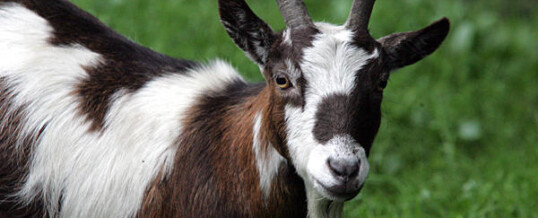
McLeod Group Blog, December 2, 2016
It’s the time of year when our media overflow with requests for funding – with the implication that buying a goat or sponsoring a child will ‘save’ a family. The fact that these fundraising efforts are so ubiquitous and so successful shows that Canadians badly want to do something about global poverty and to contribute to sustainable development. But these appeals, based on the engaging image of a goat (or chickens, or bed nets, or school supplies) may actually perpetuate some of the problems that create poverty.
First of all, the images put the donor at the centre – we feel good when we give to the poor child or family. Without us, the ads imply, their lives will not change. While this is flattering for us, it’s about as far from the truth as it’s possible to get. Good governance and fairness in the domestic and the global economies are not gifts that can be donated by well-meaning individuals. It’s not that goats are bad, it’s that charities mislead donors into thinking they are an adequate response to poverty.
Building prosperous societies, not to mention fair global trading systems, requires time and hard work, and it involves challenges to powerful individuals and structures. It’s a complex business, and giving goats or sponsoring children doesn’t begin to approach the intersecting factors that maintain poverty By selling us a goat, the agencies that sponsor them oversimplify poverty and make it difficult to identify and support more important avenues for change.
International charities complain that they can’t raise the same amount of money without putting donors at the centre of the picture, or without tear-jerking images. But they have created this situation themselves. No respectable Canadian charity would raise money for work with indigenous Canadians by telling potential donors that problems can be solved, or even seriously addressed, with a one-off goat at Christmas. It wouldn’t work. They would be laughed, if not scorned out of business.
The problems of the recipient are complex, and if givers want their assistance to make a difference, they have to become more serious and more educated about the problems. The onus for that falls squarely on the shoulders of the charities who dumb down both the problem and the solution to a single feel-good opportunity: a goat.
It’s time to end this old fashioned neo-colonial model. Charities need to move beyond the goat and start telling Canadians more about the complex issues involved in overcoming world poverty. The Canadian government needs to step up its game in supporting NGOs that take an adult approach to their messaging, and to improve its own public messages about the causes of, and solutions to underdevelopment. Hopefully, this will be one of the directions espoused emerging from the International Aid Review.
The Cost of a Goat for Christmas
ADRA: no goats but a cow costs $750
Canadian Feed the Children: $75
CARE Canada: $50
Chalice Canada: $75
Christian Children’s Fund: $100
Compassion Canada: $79
Food for the Hungry: $75
Mennonite Central Committee: $55
Oxfam Canada: $58
Plan Canada: a sheep: $50, a herd of goats $775
Samaritan’s Purse Canada: a goat ‘or similar animal’ $40
Save the Children Canada: $60
World Vision Canada: $100-200 (goat + 2 hens and a rooster: $150)
